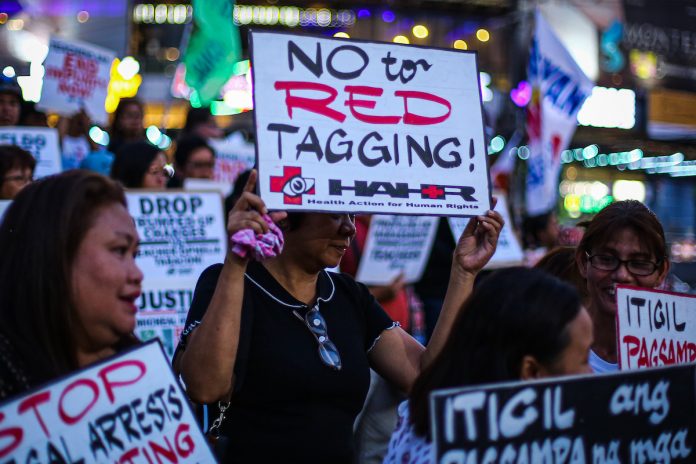A network of faith-based and human rights groups engaged in this year’s United Nations’ Philippines Universal Periodic Review (UPR) took exception to the remarks of Philippine Justice Secretary Jesus Crispin Remulla red-tagging as a “part of democracy.”
In a statement on Thursday, October 14, the UPR Watch called on members of the UN Human Rights Committee (UNHRC) and the international community to denounce red-tagging “because it has no place in a democratic and civilized society.”
Remulla’s statements were made amid concerns expressed by an independent human rights expert of the UNHRC over the perils of red-tagging on the lives of people who raise legitimate issues on government policies.
In his testimony before the UNHRC in Geneva, Remulla said the Philippine government is only responding to criticisms, but some individuals or organizations called it red-tagging.
Red-tagging has been defined as associating an individual or organization as a supporter or connected to the communist movement.
“So, when people are criticized for being critics, or when people are criticized for helping the wrong people, why is red-tagging the issue?,” said Remulla.
“It is because it is the defense of the left to protect the left in our country. If you can dish it out, you should be able to take it. That, for me, is probably the essence of democracy,” he added.
The Commission on Human Rights earlier said that the prevalence of red-tagging in recent years “has resulted in attacks against the lives, liberty, and security of groups and organizations, especially those working in defense of the rights of vulnerable and marginalized sectors.”
UPR Watch said Remulla’s remarks “do not only encourage and normalize red-tagging but also brandish it as an institutionalized and orchestrated method of the government in dealing with perceived ‘political critics.’”
The group claimed that at the end of former president Rodrigo Duterte’s administration early this year, there were 801 political prisoners while 442 human rights defenders, church and health workers, journalists, environmentalists, women, peasants and indigenous people became victims of extra-judicial killings.
“Most, if not all of them, have been red-tagged by the State, its agents, proxies, supporters and enablers,” claimed UPR Watch in its statement.
The group also alleged that during the first 100 days of the administration of President Ferdinand Marcos Jr., 10 civilians were killed, four have been abducted and remain missing, and at least 37 have been arbitrarily arrested and detained.
“Similarly, all of them were red-tagged online and offline, and suffered threats and harassment before they were killed, abducted or arrested,” said the group.
UPR Watch maintained that red-tagging “has dire consequences on persons, families, organizations and communities.”
“Feigning ignorance on these consequences and packaging these threats as mere exercise of freedom of expression are clear signals of a policy of tolerance for human rights violations and impunity,” read the group’s statement.









